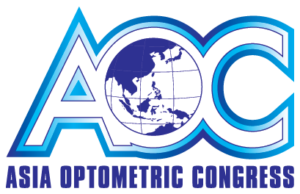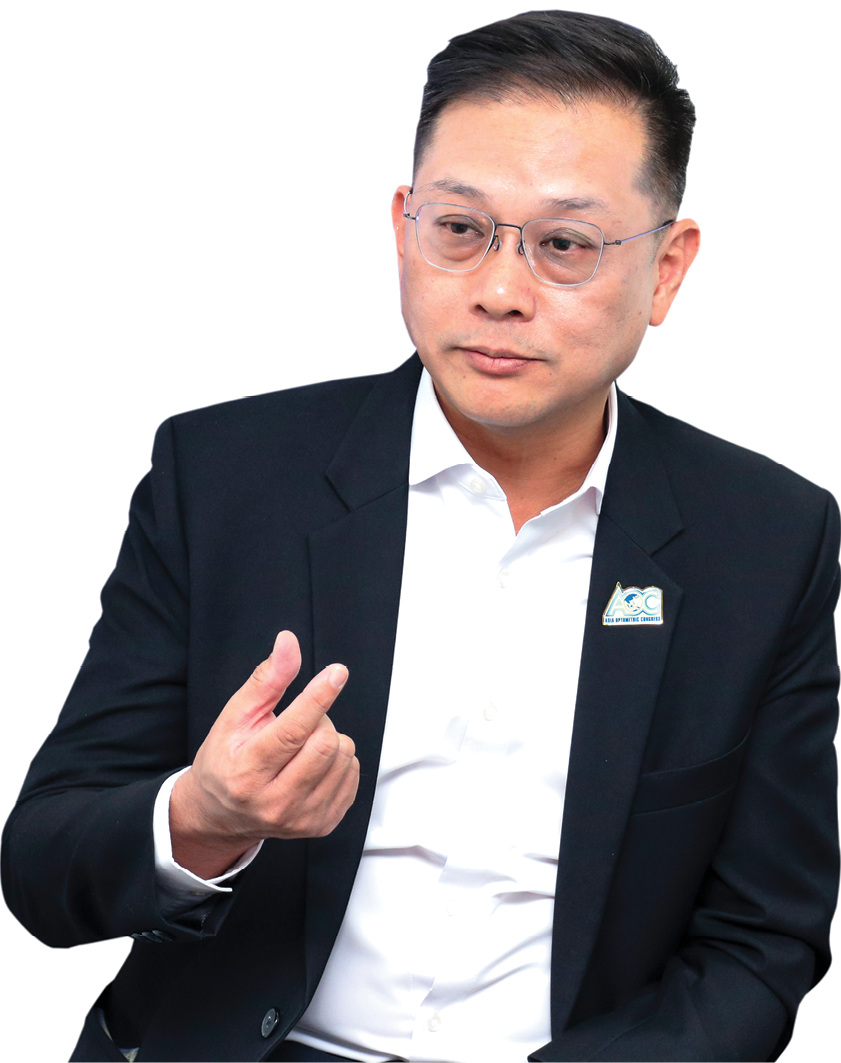AOC is committed to developing and strengthening Asian optometry and eye care services and standards.
The Asia Optometric Congress (AOC) is a non-profit professional organisation registered with the Registrar of Society in Singapore. It aims to promote the optometric profession and the standard of eyecare practice in Asia.
AOC President Datuk Murphy Chan shared: “It all started with a simple chat among passionate optometrists with concerns over the growth and prospect for optometry in Asia.
 “Thus, AOC, initially named the ASEAN Optometric Conference, was founded when Kuala Lumpur hosted the first conference in 2007. Starting in 2014, we expanded the bi-annual conference to Southeast Asian countries such as Singapore, the Philippines and Indonesia.
“Thus, AOC, initially named the ASEAN Optometric Conference, was founded when Kuala Lumpur hosted the first conference in 2007. Starting in 2014, we expanded the bi-annual conference to Southeast Asian countries such as Singapore, the Philippines and Indonesia.
“In 2016, the Asia Optometric Congress was established to include Asian countries and territories at the conference held in Manila, Philippines.”
As of 2022, AOC comprises countries like Malaysia, Singapore, Thailand, Philippines, Korea, Cambodia, Myanmar, Laos, Vietnam, Indonesia, India and China.
He said AOC was a platform for clinicians, eye care practitioners, industrial partners, academia and researchers to showcase their services and work, as well as to come together and collaborate to ensure the continuous improvement of the eyecare standard and services in Asia.
“With AOC’s commitment towards standardising eye care delivery in this region, encouraging new technology and digitalisation in our practice, and providing continuing education to our practitioners, I believe this transformation will definitely deliver more comprehensive eye care to the Asian community.”
Serving a broad purpose for Asian optometry
“The main existence of the AOC was derived from the concept of ‘Asians helping Asia’. Towards this, we outlined six objectives which encompass a wide purpose to develop further and strengthen the Asian optometry and eyecare services and standards.”
The objectives of AOC are:
- to establish the practice of optometry according to the eye health needs of the Asian region with due respect to the socio-economic, cultural aspects and identity of its people;
- to promote the science and profession of optometry across the Asian region;
- to adopt such endeavours that would lead to the establishment of formal optometry programs in the target countries/territories;
- to promote the recognition and advancement of optometry as a profession through legislation, regulation and education;
- to reduce the global threat of vision impairment and avoidable blindness through education and eye health advocacies;
- to undertake projects and activities that would raise the standard of eye and vision care across the region.
Driving the profession and eyecare standards
In line with its objectives, AOC actively uses its platform to drive the optometric profession and eye care standards in the Asian region. It focuses on three essential components; legal, education and standards.

“In terms of the legal component, legislation and law are essential to protect and promote proper eyecare, and we were able to use AOC as a platform to encourage eyecare legislation.
“For example, AOC has fully supported the Indian Optometric Association to raise the Optical Act with the Indian government.
“As for education, it is encouraging to see cooperation among countries and the growth of Asian talents and experts.
“We are quite independent now as we can rely on local Asian talents for optometry knowledge and skills, and we can export optometry syllabus and the degree to other countries,” added Chan.
The final component is developing the standard of optometry practice and service in Asia and narrowing the gap in eyecare standards and services around Asia.
“This is important because Asia is a big continent consisting of underdeveloped, developing and developed countries. Therefore, there are varying gaps in access, level and resources to eye care services.
“I am glad the United Nations (UN) committed to the resolution on vision in 2021 under its Sustainable Development Goals (SDGs).
“The resolution passed unanimously by 193 countries, which states every country must ensure full access to eyecare services to their population by 2030.”
The resolution, he believes, will help gain more traction and support from governments to make legislation and policy change for the betterment of eyecare services and standards.
Chan served as the Association of Malaysian Optometrists (AMO) President from 2016 to 2018.
“It was indeed a privilege to have served AMO. I looked into creating a sustainable team to expand AMO activities and purpose to ensure the optometry profession and service remained relevant and updated.
“I also launched the ‘We believe in AMO’ campaign. It was to promote eye care practitioners to create eye care awareness to the public, to encourage more optometrist membership participation, and to promote continuous education to upgrade and improve optometry skills and capabilities.
“I’m glad to see that AMO has continued to flourish and develop leaps and bounds with its new leadership.” – AOC







